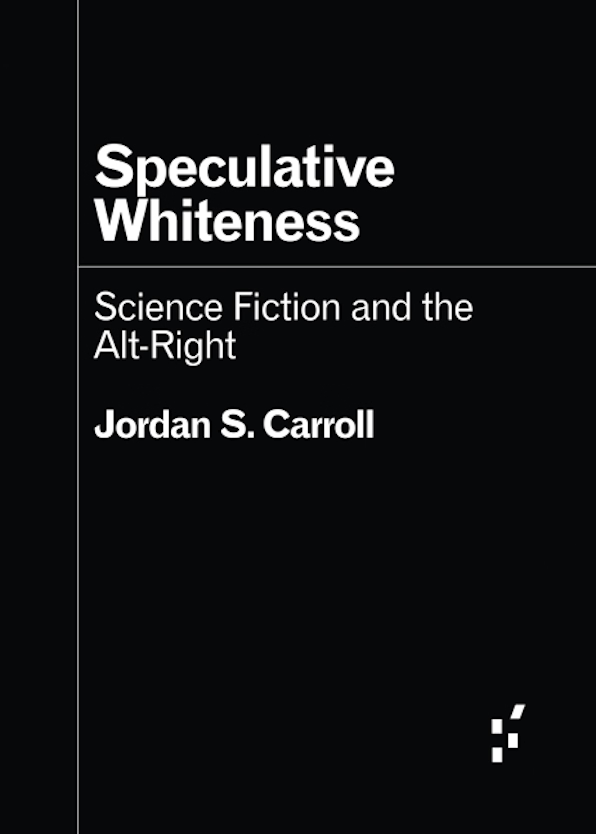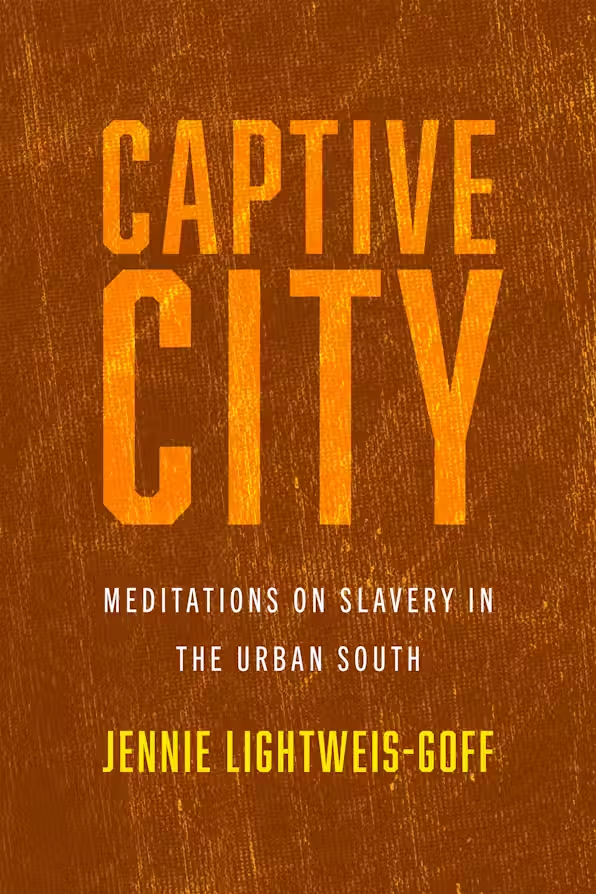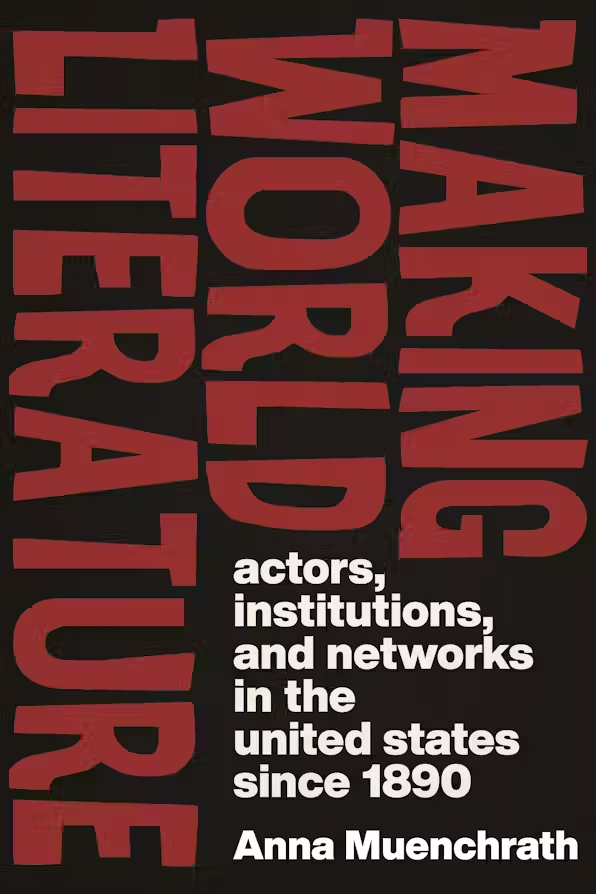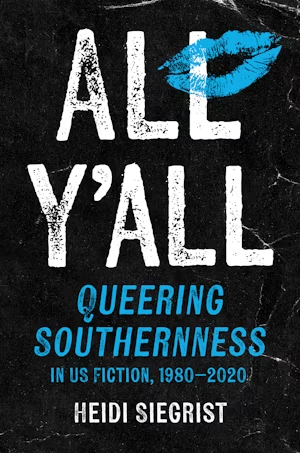As a companion to our 2024 lists of books and articles by contingent historians, here’s a list of books, book chapters, and peer-reviewed journal articles published by contingent literary studies scholars in 2024. The contents were collected by Rebecca Colesworthy and Laura Hartmann-Villalta.
 Julia Bloch, Lyric Trade: Reading the Subject in the Postwar Long Poem (University of Iowa Press)
Julia Bloch, Lyric Trade: Reading the Subject in the Postwar Long Poem (University of Iowa Press)
Lyric Trade digs into how poems use lyric in relation to race, gender, nation, and empire. Engaging with poets such as Gwendolyn Brooks, H.D., Lorine Niedecker, Alice Notley, and Myung Mi Kim, this book asks: What does lyric mean, and why should it matter to poets and readers? Lyric Trade argues that lyric in the postwar long poem not only registers the ideological contradictions of modernism’s insistence on new forms, but that it also maps spaces for formal reimaginings of the subject.
 Jordan S. Carroll, Speculative Whiteness: Science Fiction and the Alt-Right (University of Minnesota Press)
Jordan S. Carroll, Speculative Whiteness: Science Fiction and the Alt-Right (University of Minnesota Press)
. . . white nationalists envision racist utopias filled with Aryan supermen . . . [Carroll] traces the entangled histories of science fiction culture and white supremacist politics, showing that debates about representation in science fiction films and literature are struggles over who has the right to imagine and inhabit the future. Although fascists insist that tomorrow belongs to them, they have always been and will continue to be contested by antifascist fans willing to fight for the future.
 Aaron Brice Cummings, Baudelaire’s Bitter Metaphysics: Anti-Nihilist Readings by Fondane, Benjamin, and Sartre (Lexington Books)
Aaron Brice Cummings, Baudelaire’s Bitter Metaphysics: Anti-Nihilist Readings by Fondane, Benjamin, and Sartre (Lexington Books)
Why did three of Europe’s sharpest minds respond to the terror of 1933-45 by writing about a long-dead poet? Aaron Brice Cummings argues that Fondane, Benjamin, and Sartre turned to the poet of nihilism’s abyss because they recognized a fact of cultural history that remains relevant today: until sometime in the 2080s, the literary world will have to confront (even if to deny) the two-century window forecast by Nietzsche as the age of cultural and existential nihilism.
 Dominic Dean, Killing Children in British Fiction: Thatcherism to Brexit (SUNY Press)
Dominic Dean, Killing Children in British Fiction: Thatcherism to Brexit (SUNY Press)
This book stems from a simple yet disturbing observation: contemporary British fiction is full of children killing or being killed. Thoughtfully considering novels and films, alongside actual murder cases and moral panics, Dominic Dean develops this insight into a complex account of British cultural history, [arguing] that the figure of the child provides means for negotiating, and hence for understanding, recent crises in Britain and their intersections with broader transnational conflicts.
 Jennie Lightweis-Goff, Captive City: Meditations on Slavery in the Urban South (Penn Press)
Jennie Lightweis-Goff, Captive City: Meditations on Slavery in the Urban South (Penn Press)
Captive City explores the paths of slavery in coastal cities, arguing that captivity haunts the “hospitality” cultures of Charleston, New Orleans, Savannah, and Baltimore . . . a literary reflection that argues for coastal cities as a distinct region that scrambles time, resisting the “post” in postindustrial and the “neo” in neoliberalism. Jennie Lightweis-Goff offers a cultural exploration bound by American literature, especially life-writing by the enslaved . . .
 Anna Muenchrath, Making World Literature: Actors, Institutions, and Networks in the United States since 1890 (University of Massachusetts Press)
Anna Muenchrath, Making World Literature: Actors, Institutions, and Networks in the United States since 1890 (University of Massachusetts Press)
The “world” of world literature, Anna Muenchrath argues, is a heterogeneous network of people whose circulation of literature is necessarily imbricated in the market economy, but whose selections might resist that economy and open new literary futures . . . this book considers what those participating are trying to do in circulating a text, and what communities they are helping to form or strengthen.
 Katina Rogers, The Presence of Absence: Meditations on the Unsayable in Writing (Punctum Books)
Katina Rogers, The Presence of Absence: Meditations on the Unsayable in Writing (Punctum Books)
The Presence of Absence crosses languages and disciplines, working in French and English across poetry, photography, history, and literary theory. Through investigations of Nox by Anne Carson, Quelque chose noir by Jacques Roubaud, Wayward Lives, Beautiful Experiments by Saidiya Hartman, and Le livre des questions by Edmond Jabès, Rogers explores various truths . . . that are difficult to articulate and yet resonate deeply with lived experience.
 Ryan Ruby, Context Collapse: A Poem Containing a History of Poetry (Seven Stories Press)
Ryan Ruby, Context Collapse: A Poem Containing a History of Poetry (Seven Stories Press)
Cheekily introducing academic discourse, media studies, cybersemiotics, literary sociology, and heterodox economics into his blank verse study of poetry, Ruby traces the always delicate dance between poets, their publishers, and their audiences, and shows how, time and time again, the social, technological, and aesthetic experiments that appear in poetic language have prefigured radical changes to the ways of life of millions of people.
 Heidi Siegrist, All Y’all: Queering Southerness in US Fiction, 1980-2020 (University of North Carolina Press)
Heidi Siegrist, All Y’all: Queering Southerness in US Fiction, 1980-2020 (University of North Carolina Press)
Siegrist explores the boundaries of negotiating place and sexuality by using the concept of Southernness—a purposefully fluid idea of the South that extends beyond simple geography, eschewing familiar ideas of the Southern canon. When the connection between queerness and Southerness becomes apparent, Siegrist shows a Southern-branded queer deviance can not only change the way we think about literature but can also change Southern queer people’s lived experiences.
 Douglas R. J. Small, Cocaine, Literature, and Culture, 1876-1930 (London: Bloomsbury Academic)
Douglas R. J. Small, Cocaine, Literature, and Culture, 1876-1930 (London: Bloomsbury Academic)
[Small] offers an important exploration of the drug’s symbolic and metaphorical associations in the decades prior to its criminalization. Examining the paradoxical position of cocaine in this period by looking at its role as an icon of technology, modernity and idealised medical identity, alongside developing notions of habituation and dependence, this book reads texts such as the Sherlock Holmes stories, by Arthur Conan Doyle, as well as work by Arthur Machen, W.C Morrow and Aleister Crowley.
 Dennis Wilson Wise, ed., Speculative Poetry and the Modern Alliterative Revival: A Critical Anthology (Fairleigh Dickinson University Press)
Dennis Wilson Wise, ed., Speculative Poetry and the Modern Alliterative Revival: A Critical Anthology (Fairleigh Dickinson University Press)
Over the last ten decades, poets working in fantasy, science fiction, and horror have collectively brought forth a revival in alliterative poetics akin to what once happened in the mid-fourteenth century. Altogether, this anthology collects for the first time over fifty speculative poets—several of whom are previously unpublished—from across North America and Europe, establishing where the medieval meets the modern in the hitherto unrecognized Modern Alliterative Revival.
Kreg Abshire, “Filming the Cultural Work of Americana Music: Inside Llewyn Davis and the Disruptive Potential of Nostalgic Sound,” Textes and Contextes 19, no.1 (2024).
Jill E. Anderson “Student Dancer: Education, Community, and Love in Regina J. Woody’s Dance-Career Novels,” in Beyond Nancy Drew: U.S. Girls’ Series Fiction in the Twentieth Century, eds. LuElla D’Amico and Emily Hamilton-Honey (Lexington Books), 241-61.
Marie Allitt, “Dashing off a Diagnosis: Diagnostic Reading in Meg Mason’s Sorrow and Bliss,” Contemporary Women’s Writing 18 (Oct 2024).
Michelle Anya Anjirbag-Reeve, “But They Still Lived Happily Ever After – or at Least, Happily: Disney’s contemporary ‘postmodern’ fairy tales,” Fabula 65, no. 3-4 (2024): 403-419.
Michelle Anya Anjirbag-Reeve, “Pumpkin‐carriage palimpsests: Disney’s Cinderellas and the Disney fairy‐tale mode,” The Journal of American Culture 47, no. 2 (2024): 97-104.
Michelle Anya Anjirbag-Reeve and Timothy S. Miller, “Introduction,” Science Fiction Film and Television 17, no. 3 (2024): 313-319.
Leila Belkora, “Robert Frost and the Leonid Meteor Shower,” Culture and Cosmos 27, no.1 (Spring/Summer 2023): 227-239. Published September 2024.
Wayne Bradshaw, “Misapprehensions of a Caustic Eye: A. D. Hope and the Failure of Angry Penguins as a Modernist Literary Movement,” Journal of Australian Studies 48, no. 3, 299–313.
Nissa Ren Cannon, “Katherine Anne Porter’s Ship of Fools and the Ephemeral Promise of Transnational Community,” Open Library of Humanities 10, no.2 (2024).
Nissa Ren Cannon, “Lending Books on the Left and Right Banks: Borrowing Practices at the American Library in Paris, and Shakespeare and Company.” Modernism/Modernity Print Plus, The World of Shakespeare & Company Research Cluster 8, no.3 (2024).
Max L. Chapnick, “Characters as Fields: Michael Faraday, Electromagnetism, and Charles Dickens’s Bleak House,” Journal of Literature and Science 17, no.1 (2024): 19-34.
Max L. Chapnick, “Duty and Ambition in Louisa May Alcott Poems, Old and New,” American Periodicals: A Journal of History and Criticism 34, no. 2 (2024):171-184.
Kavita Mudan Finn, “Our Shakespeare, ourselves: The pleasures (and pitfalls) of fannish reading,” Transformative Works and Cultures 43 (2024).
Kavita Mudan Finn, “The Dead Ladies Club; or The Pleasures and Pitfalls of Fannish Reading,” in Medievalism and Reception, eds. Ellie Crookes and Ika Willis (Boydell & Brewer, 2024).
Rachel L. Greenblatt, “Women Wrote: Glikl in Context” In geveb (July 2024)
Shilo Rae McGiff, “The Rat or the Flower? Decomposed Being(s) in the Holograph Draft of Virginia Woolf’s The Waves,” Virginia Woolf and the Anthropocene, ed. by Peter Adkins (Edinburgh University Press).
Sean O’Brien, “Detecting the Present: Contemporary Neo-Noir and the Case of American Decline,” Polygraph 29 (Sept 2024): 43-60.
Hunter Plummer, “’Like Home’: Gerrymandering the Physical Public Sphere in Female Journalist Narratives,” The Journal of the Gilded Age and Progressive Era 23, no. 1 (2024): 84-101.
Eleanor Russell, “Richard Pryor’s Sonic Acts: Epistemological Rupture at the Hollywood Bowl, 18 September 1977,” Theatre Survey 65 (2024): 133-145.
Kate Schnur, “Thinking with the Girls with Burning Hinder Parts: Process, Revision, and Uncertainty in Djuna Barnes’s Ladies Almanack,” Modern Fiction Studies 70, no. 3 (Fall 2024): 433-455.
Alex White, “The caged bird sings of freedom: Maya Angelou’s anti-colonial journalism in the United Arab Republic and Ghana, 1961–1965,” Journal of Global History 19, no. 3 (Nov 2024): 421-438.
Dennis Wilson, “A Schema for Artorius: History, John Heath-Stubbs, and the Last Modernist Epic,” Journal of the International Arthurian Society 12, no. 1 (2024): 134–56.
Carlisle Yingst, “Transition by the Book: Editing, Pseudonymity, and the Possibilities of Trans Bibliography,” The Papers of the Bibliographical Society of America 118, no. 2 (June 2024): 197-222.